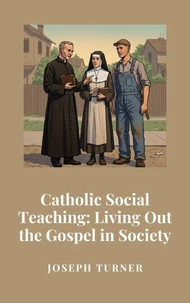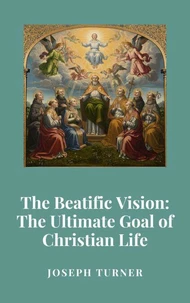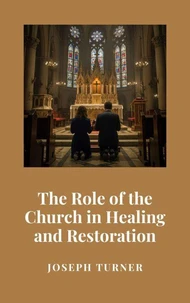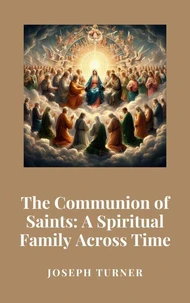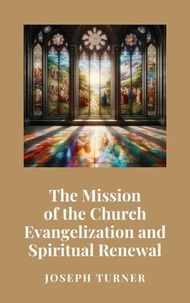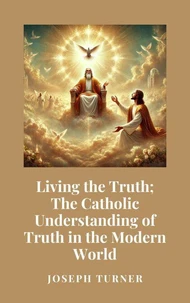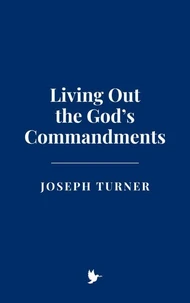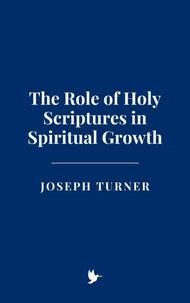Understanding Love and Charity in Christ
Par :Formats :
Disponible dans votre compte client Decitre ou Furet du Nord dès validation de votre commande. Le format ePub est :
- Compatible avec une lecture sur My Vivlio (smartphone, tablette, ordinateur)
- Compatible avec une lecture sur liseuses Vivlio
- Pour les liseuses autres que Vivlio, vous devez utiliser le logiciel Adobe Digital Edition. Non compatible avec la lecture sur les liseuses Kindle, Remarkable et Sony
 , qui est-ce ?
, qui est-ce ?Notre partenaire de plateforme de lecture numérique où vous retrouverez l'ensemble de vos ebooks gratuitement
Pour en savoir plus sur nos ebooks, consultez notre aide en ligne ici
- FormatePub
- ISBN8230637875
- EAN9798230637875
- Date de parution22/02/2025
- Protection num.pas de protection
- Infos supplémentairesepub
- ÉditeurIndependently Published
Résumé
Love and charity stand at the heart of Christian life, woven into the fabric of divine revelation and human experience. The call to love, exemplified by Christ, is not merely an ethical recommendation but a divine imperative that transcends human limitations. Rooted in the Sacred Scriptures, the teachings of the Church Fathers, and the theological reflections of the great Doctors of the Church, love and charity define the path to holiness and eternal communion with God.
The Church, as the Mystical Body of Christ, has preserved and expounded upon these virtues throughout history, affirming their centrality in the Christian journey. From the earliest writings of the Old Testament, love is portrayed as the essence of God's relationship with His people. The Shema Israel, found in Deuteronomy 6:4-5, commands the faithful to love God with all their heart, soul, and strength.
This foundational commandment finds its ultimate fulfillment in the New Testament, where Jesus Christ reaffirms and expands it, integrating love of neighbor into the divine law (Matthew 22:37-40). Love, in its highest form, is not merely a human emotion but a participation in the very nature of God, for as St. John declares, "God is love" (1 John 4:8). This reality permeates every dimension of Christian theology, forming the basis of the moral and spiritual life.
The Church, as the Mystical Body of Christ, has preserved and expounded upon these virtues throughout history, affirming their centrality in the Christian journey. From the earliest writings of the Old Testament, love is portrayed as the essence of God's relationship with His people. The Shema Israel, found in Deuteronomy 6:4-5, commands the faithful to love God with all their heart, soul, and strength.
This foundational commandment finds its ultimate fulfillment in the New Testament, where Jesus Christ reaffirms and expands it, integrating love of neighbor into the divine law (Matthew 22:37-40). Love, in its highest form, is not merely a human emotion but a participation in the very nature of God, for as St. John declares, "God is love" (1 John 4:8). This reality permeates every dimension of Christian theology, forming the basis of the moral and spiritual life.
Love and charity stand at the heart of Christian life, woven into the fabric of divine revelation and human experience. The call to love, exemplified by Christ, is not merely an ethical recommendation but a divine imperative that transcends human limitations. Rooted in the Sacred Scriptures, the teachings of the Church Fathers, and the theological reflections of the great Doctors of the Church, love and charity define the path to holiness and eternal communion with God.
The Church, as the Mystical Body of Christ, has preserved and expounded upon these virtues throughout history, affirming their centrality in the Christian journey. From the earliest writings of the Old Testament, love is portrayed as the essence of God's relationship with His people. The Shema Israel, found in Deuteronomy 6:4-5, commands the faithful to love God with all their heart, soul, and strength.
This foundational commandment finds its ultimate fulfillment in the New Testament, where Jesus Christ reaffirms and expands it, integrating love of neighbor into the divine law (Matthew 22:37-40). Love, in its highest form, is not merely a human emotion but a participation in the very nature of God, for as St. John declares, "God is love" (1 John 4:8). This reality permeates every dimension of Christian theology, forming the basis of the moral and spiritual life.
The Church, as the Mystical Body of Christ, has preserved and expounded upon these virtues throughout history, affirming their centrality in the Christian journey. From the earliest writings of the Old Testament, love is portrayed as the essence of God's relationship with His people. The Shema Israel, found in Deuteronomy 6:4-5, commands the faithful to love God with all their heart, soul, and strength.
This foundational commandment finds its ultimate fulfillment in the New Testament, where Jesus Christ reaffirms and expands it, integrating love of neighbor into the divine law (Matthew 22:37-40). Love, in its highest form, is not merely a human emotion but a participation in the very nature of God, for as St. John declares, "God is love" (1 John 4:8). This reality permeates every dimension of Christian theology, forming the basis of the moral and spiritual life.





